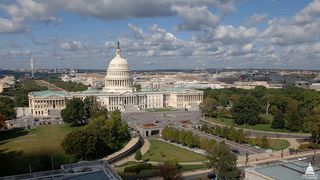Civil Rights Groups Back Applying TV, Radio Political Ad Disclosures to Web

While they give a nod to the self-regulatory efforts of the advertising industry to make political ad disclosures more transparent, some civil rights groups are telling the Federal Election Commission that does not obviate the need for prompt revisions and additions to its online disclosure rules adopted in 2006, the same year Twitter launched and Facebook was still in digital diapers.
Having reopened its docket to new comments on an existing inquiry into online political ad disclosures--which were due Nov. 13, 2017--the FEC subsequently voted to open the new rulemaking. The FEC initially sought comment on the issue way back in 2011.
Asian Americans Advancing Justice, Color of Change, and the National Hispanic Media Coalition in their comments applauded the proposed updates to the rules. They said their constituents were disproportionately affected given that they overindex for using social media, particularly on mobile devices, and had also been "harmed by the dark side of digital communications" as "the targets of malicious voter suppression efforts that take advantage of the fact that current FEC disclosure rules are obsolete."
The FEC docket was reopened in the wake of revelations that Russia bought ads on social media powerhouses--Facebook, Twitter--to try and effect the 2016 presidential election.
Related: Facebook Boosts Political Ad Disclosures
The FEC in March proposed applying the disclosure rules on TV and radio political ads to online ads as well, which currently lack such disclosure mandates.
Related: FEC Hears It on Political Ad Disclosures
Broadcasting & Cable Newsletter
The smarter way to stay on top of broadcasting and cable industry. Sign up below
It sought comments on two approaches to disclaimers on internet political ads.
Choice A, backed by Democrats and the civil rights groups, would be to apply the full disclaimer requirements that apply to radio and TV political ads to internet ads with audio or video components and current print disclaimers to the graphics and text in internet ads. Finally, it would include a provision for some smaller 'net communications--like banner ads--to satisfy the disclosure requirement via an "adapted disclaimer." Such "adapted disclaimers" could include "a abbreviated disclaimer on the face of the communication in conjunction with a technological mechanism that leads to a full disclaimer."
A is based on the assumption that internet ads with audio or video are indistinguishable from radio or TV ads other than the means of distribution--many different formats on many different tech platforms.
The civil rights groups support the adapted disclaimers, but only as a last resort and only so long as the FEC adopts criteria for them to "minimize confusion and deter abuses."
Choice B, favored by Republicans, would treat internet communications differently from traditional media. It would require disclaimers to be clear and conspicuous and have the same general content requirements, but without the requirements that apply to TV, radio and print. It would require radio and TV political ads distributed over the internet simply to meet general disclaimer requirements that apply to all public communications requiring disclaimers, rather than the disclosures that apply when they are broadcast.
Related: FEC Hears It on Online Political Ad Disclosures
Option B is based on the premise that the internet is a unique medium with unique challenges, thus the general requirement without the "stand by this ad' requirement of TV and radio ads. It would also allow some paid internet ads to satisfy the requirements using an adapted disclaimer depending on space or time constraints, and even a waiver for an ad that could not provide a disclaimer "even through a technological mechanism."
Related: Honest Ads Bill Creates Online Political Ad Public File
The civil rights groups said they generally support the FEC definition of relevant "public communication," but want it extended to include communications promoted for a fee as well as placed for a fee, so it would include paid influencers as well as paid advertisers.
Contributing editor John Eggerton has been an editor and/or writer on media regulation, legislation and policy for over four decades, including covering the FCC, FTC, Congress, the major media trade associations, and the federal courts. In addition to Multichannel News and Broadcasting + Cable, his work has appeared in Radio World, TV Technology, TV Fax, This Week in Consumer Electronics, Variety and the Encyclopedia Britannica.

